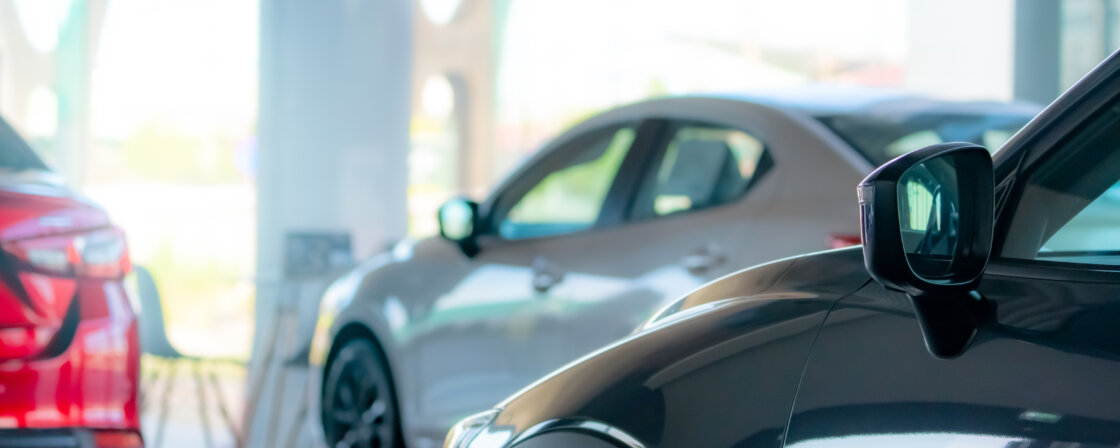How to buy a car without VAT
In common practice, you will often come across the expression “VAT-free car”, but this does not mean that VAT is not actually paid. It is a situation where a VAT-paying entrepreneur has the right to deduct VAT on the purchase of a vehicle retroactively, thus effectively reducing the purchase price. It is not that he never pays the VAT, but that he reclaims it from the tax office.
Who is entitled to deduct VAT on a car?
In order for a business to claim input VAT on the purchase of a car, the following conditions must be met:
- he is a VAT payer,
- is an entrepreneur (self-employed or a company),
- the car will be used for business purposes,
- it is not a vehicle that is excluded from VAT deduction by law (e.g. some luxury cars).
If all the conditions are met, the entrepreneur is entitled to deduct the full VAT paid on the purchase of the car.
Tip for article
When to register for VAT as a self-employed person? How can you get into this tax regime and what advantages or disadvantages does it entail? The answer can be found in our article.
What if you are buying a leased car?
You can also claim VAT on the purchase of a finance lease, but it depends on how the lease agreement is structured. If the contract explicitly includes an obligation for the lessee to buy the car at the end of the lease, you can claim VAT on the full value of the car when you take it over.
In the absence of such a clause, VAT is applied progressively on the instalments, according to the instalment schedule.
Are you solving a similar problem?
Are you unsure about the correct VAT treatment of your company car?
We can help you navigate the law, whether it’s dealing with a specific tax situation, preparing for an audit by the tax authority or defending yourself in court.
I want to help
- When you order, you know what you will get and how much it will cost.
- We handle everything online or in person at one of our 6 offices.
- We handle 8 out of 10 requests within 2 working days.
- We have specialists for every field of law.
What if you buy a car from abroad (within the EU)?
There is a special rule for new cars bought within the EU: VAT is not paid in the country of the seller, but in the country of the buyer. In other words:
- the seller from another EU country sells the car without VAT,
- you as the buyer (even if you are not a VAT payer) are obliged to pay Czech VAT.
If you are a VAT payer, you declare the VAT and deduct it at the same time – so the result is zero and the car is effectively VAT-free for you.
Beware of insurance and insurance company claims
If you buy a car as a VAT payer and claim the deduction, you also have the option of insuring the car at the VAT-free price. This means: lower premiums (because the policy only covers the VAT-free amount), but in the event of an accident the insurance company will also only pay out the VAT-free price.
Tip for article
Anyone who is about to get behind the wheel should keep one crucial thing clearly in mind – compulsory liability insurance. What should you know about this obligation? Read our article.
Advantages and disadvantages of buying a car without VAT
Advantages:
- Lower acquisition costs: the VAT payer has the opportunity to apply input tax if the legal conditions are met, effectively reducing the purchase price of the vehicle by 21%. For example, for a vehicle with a price of CZK 800,000 including VAT, the amount corresponding to VAT is approximately CZK 138,842 – which can be reclaimed.
- In addition to the purchase of the car itself, VAT can also bededucted on other operating costs, such as fuel, servicing, spare parts or additional equipment.
- Lower insurance premiums: if the vehicle is purchased with VAT deduction, it can be insured at the tax-free price.
Disadvantages and risks:
- Need to pay VAT upfront: although the tax will be reclaimed later, it must be paid first when purchased. This means a temporary increase in the financial burden.
- Administrative burden: Claiming VAT deduction entails the obligation to keep tax records or accounts, to prove the use of the vehicle for business purposes, to file VAT returns regularly and to keep a logbook.
- Restrictions in case of private use: If the vehicle is also used for private purposes, the VAT deduction must be reduced accordingly. In the case of mixed use, it is necessary to keep detailed records and registers to show the distribution of the use of the vehicle.
Tip for article
Read more about using a company car for private purposes and the obligations that come with it.
- Lower premium = lower insurance benefit: Insurance at the price without VAT reduces the premium, but in the event of an insured event, the amount of the insurance benefit is also deducted – only the amount without VAT is covered.
- Obligation to pay VAT on sale: If a vehicle is purchased with VAT deduction and subsequently sold, tax must be paid on the sale price.
Financing options for the purchase of a company car
Purchasing a company car is a major investment for many entrepreneurs. Not everyone can afford to pay for a new car out of their own pocket in one lump sum, so in practice they often resort to various forms of financing. Each has its own advantages and specifics, which you should consider carefully – ideally with regard to the type of business, the finance available and the intended use of the car.
Buying with cash
The easiest and most direct route. If you have sufficient spare funds, you can buy the car outright and without further commitment. The car immediately becomes your property, you can put it on the books, depreciate it and claim the VAT deduction straight away.
Advantages:
- No interest or contractual obligations.
- Immediate accounting classification and VAT deduction.
Disadvantages:
- A major one-off expense.
- Reduction of the company’s liquidity.
Financial leasing
In this option, the leasing company remains the owner of the car for the duration of the repayment period. However, you can use the car on a regular basis and buy it back at the end of the lease. If the contract provides for compulsory purchase, VAT can be deducted when you take delivery of the car.
Advantages:
- Spreading the costs over a longer period.
- Lower initial investment.
- Lease payments are tax deductible.
Disadvantages:
- The car is not your property during the repayment period.
- It cannot be depreciated.
- Required to meet a minimum lease term (usually 3 years).
Operating lease
Works like a long-term lease – you lease the car for a certain period of time and simply return it when it expires. Ideal solution for companies that want to regularly renew their fleet and don’t want to worry about selling used cars.
Advantages:
- The rental price often includes other services (service, insurance, vignette, etc.).
- Regular monthly costs, no worries about selling the car.
- Tax deductibility of costs.
Disadvantages:
- Higher monthly payments than a finance lease.
- Car never goes into your ownership.
Loan (e.g. business car loan)
An alternative is a business loan, which allows you to own the car immediately but pay off the purchase price gradually. You can depreciate the vehicle and deduct VAT.
Advantages:
- Immediate ownership.
- Possibility of VAT deduction and depreciation.
- More flexible set-up than leasing.
Disadvantages:
- Interest adds to the overall cost.
- Need to provide proof of creditworthiness and go through approval process.
Long-term lease
A traditional lease relationship may be a suitable alternative to leasing. The car remains in the ownership of the lessor, you just use it and charge the rent as an expense. The terms are often more flexible, but it depends on the specific offer.
Advantages:
- Tax deductibility of costs.
- More flexible contract set-up than a lease.
Disadvantages:
- The vehicle will never be your property.
- Limited ability to customize the lease agreement without the lessor’s consent.
Are you solving a similar problem?
Planning to buy a car?
We will arrange the purchase or sale of any movable asset for you legally, without any ambiguities or kinks. You can sign in just 3 days.
I want to help
- When you order, you know what you will get and how much it will cost.
- We handle everything online or in person at one of our 6 offices.
- We handle 8 out of 10 requests within 2 working days.
- We have specialists for every field of law.
What needs to be arranged
Purchasing a car for company property involves more paperwork than a normal car purchase in the name of an individual. Regardless of whether you buy a car outright, on credit or through leasing, you need to be prepared to document a number of documents and deal with several practical and legal formalities.
Who can act for the company?
The first step is the need to prove that the person handling the purchase is authorised to do so. If the company’s managing director is acting, usually nothing more than his or her name as it appears in the commercial register is needed. If an employee, assistant or other representative is arranging the purchase, a power of attorney or other authority to do so will be required.
Tip for article
We can help your company with any registration in the commercial register. With us, you can be sure that the registration will go smoothly and on the first try. You will save many hours of your time.
Documents for a loan or lease
If you decide to finance your car through a loan or lease, be prepared to have to provide evidence of your company’s financial health. Lenders usually require financial statements, tax returns or bank statements to verify your creditworthiness.
Registration and insurance
When you buy a car on credit, you become the owner as soon as you sign the purchase contract. This means that you are responsible for registering the vehicle and arranging legal and breakdown insurance. You need to do this as soon as possible after you take delivery of the car.
With leasing, the situation is different – the car remains the property of the leasing company, which usually takes care of registration and insurance. However, this is not always the case. In some cases, the registration is dealt with only after agreement with the client or the client’s active participation is required. We therefore recommend that you read the terms and conditions carefully.
Accounting and tax matters
In addition to the administration associated with the acquisition of the car itself, it is also important to deal with its accounting classification – i.e. when and how to put it into business assets, how to set up depreciation or how to claim operating and maintenance expenses. Everything should correspond to the financing method you choose and how you intend to use the vehicle in your business.
Sale of a company car and VAT
If at the time of sale the car is still held as business property of the entrepreneur or company, the sale proceeds are treated as business income. This means that it is subject to income tax, but it also increases the assessment base for calculating health and social security contributions. To avoid this, you can first remove the car from business assets.
Selling an undepreciated car
When a car is sold from a business asset that has not yet been fully written off, the remaining undepreciated part of the purchase price becomes a tax expense. In other words, you can no longer continue with scheduled depreciation, but you can claim the entire remaining value at once in the year you sell the car.
Disposal of a car from business assets and VAT
Disposing of a vehicle from business assets is administratively simple – just record the date of the last accounting transaction with the vehicle in the asset register or inventory card. This step is necessary if you want to continue using the car privately or sell it as a private individual.
However, beware – the mere removal of a car from commercial property does not guarantee exemption from income tax in the event of its sale. In order for the income from the subsequent sale to be truly exempt, the so-called time test must be met: at least five years must elapse between the disposal and the sale. Only then can the car be sold without having to pay income tax.
If you sell the vehicle before this test has expired, the income is not included in the assessment base for health and social security, but is taxable as other income.
From a VAT perspective, the situation is more complicated. If VAT has been deducted on the purchase of the car, then the actual removal of the car from business assets for private use is also a so-called notional supply of goods and you must pay VAT on the normal cost. The amount is determined according to the current market value of the vehicle at the date of disposal.
Obligation to pay VAT on sale
If you were a VAT payer when you bought the vehicle and claimed a tax deduction, you are obliged to pay VAT on the sale price when you sell it. This obligation applies even if the buyer is an individual, i.e. a non-taxpayer.
Summary
Buying a company car with the possibility of deducting VAT can save a company up to 21% of the price, but it also brings a number of obligations. Only the VAT payer who uses the car for business purposes is entitled to the deduction and it is not a vehicle excluded from the deduction by law. VAT must be paid first and then reclaimed. The entrepreneur can also deduct VAT from operating costs (fuel, servicing, etc.).
A car can be purchased in cash, on credit or through leasing. In the case of financial leasing, VAT can be claimed immediately if the contract contains a compulsory buy-back. With an operating lease or rental, the car never becomes the property of the company. Purchases from the EU have special rules – VAT is payable in the Czech Republic even if the vehicle was bought in another member state.
Insurance for a car purchased with VAT deduction only covers the price without tax – but lower premiums also mean lower accident benefits. If the car is used partly privately, the VAT claim must be reduced and records kept.
If you sell a car on which VAT has been deducted, you must pay VAT on the sale again. Taking a car out of business ownership does not mean automatic tax exemption – five years must pass for the sale to be exempt. In addition, even the disposal itself may mean that VAT must be paid on the market price if a deduction was originally claimed.




